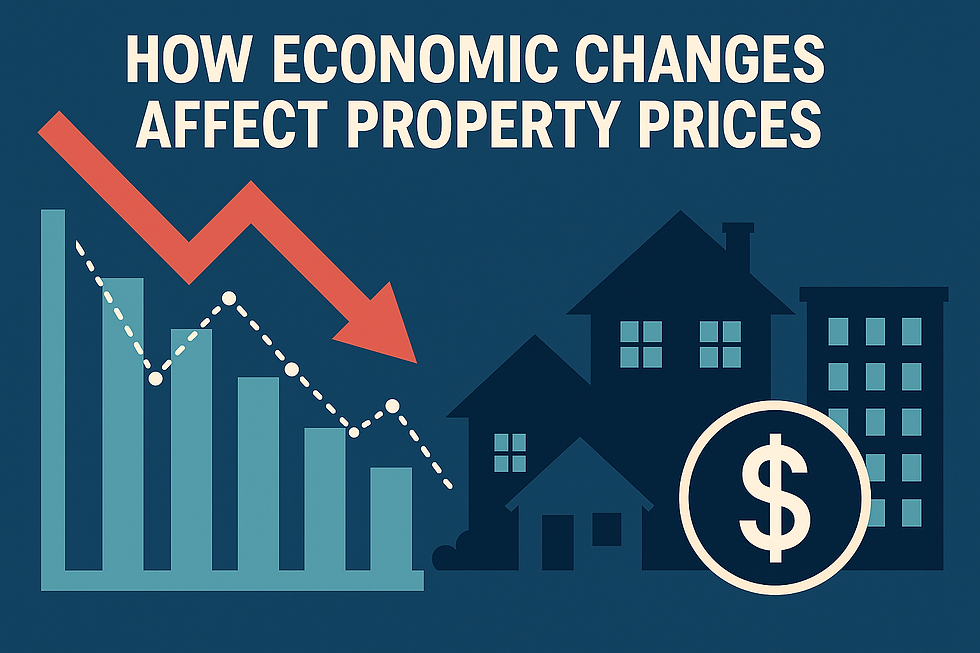Real Estate Opportunities
- Digital Transformation
- Sep 22, 2025
- 3 min read


The real estate landscape in 2025 is blossoming with fresh opportunities driven by evolving economic conditions, technological advancements, and shifting demographic patterns. For investors, professionals, and homebuyers alike, understanding the key trends shaping the market today is essential to making informed decisions that capitalize on growth and stability. This article delves into emerging real estate opportunities, highlighting promising sectors and regions that can offer long-term value.
Why Real Estate Opportunities Matter Now
Real estate remains one of the most reliable and profitable investment vehicles. However, today’s market is far from static; it’s influenced by global economic shifts, environmental concerns, and lifestyle changes such as remote work. Recognizing these changes can help investors and buyers tap into areas with high growth potential, mitigate risks, and align their portfolios with future demand patterns.
In 2025, the right real estate investment can not only generate solid returns but also contribute to community sustainability and technological progress. This makes exploring emerging opportunities all the more compelling.
Urbanization Trends: The Rise of Smaller Cities and Suburbs
The pandemic and economic dynamics have redefined where people want to live and work. Large metropolitan hubs face competition from smaller cities and suburban areas as remote work gains permanence.
Population Shifts: People are relocating to affordable smaller towns with good infrastructure and quality of life. Examples include Texas, Florida, and North Carolina in the US, and smaller towns in Portugal, Spain, and Italy.
Investment Implication: These areas offer comparatively lower property prices with increasing demand, often resulting in faster appreciation and rental income potential.
Such demographic transitions open fresh markets for residential and mixed-use development, enabling investors to diversify beyond crowded urban centers.
Green and Sustainable Real Estate: A Profitable Focus
Sustainability is no longer a niche but a mainstream imperative in real estate. Governments worldwide are enacting stricter environmental regulations, including energy efficiency standards and carbon footprint reduction goals.
Energy-Efficient Buildings: Adoption of solar panels, advanced insulation, and eco-friendly materials enhances building value.
Green Certifications: Properties with LEED or similar certifications often attract premium tenants and buyers.
Examples: Leading cities like Copenhagen, Amsterdam, and Helsinki are spearheading green real estate projects, while North America’s California and parts of Canada invest heavily in sustainable housing.
This trend aligns ethical investing with financial performance, as eco-friendly properties tend to exhibit greater long-term appreciation and lower operating costs.
Technology-Driven Real Estate: Smart Cities and Intelligent Spaces
Integration of technology into real estate is reshaping both residential and commercial properties. Smart city initiatives use AI, IoT, and blockchain to improve security, efficiency, and quality of life.
Smart Buildings: Equipped with sensors for energy management, security, and maintenance alerts, enhancing convenience and reducing costs.
Hybrid Work Model Impact: Flexible office spaces and co-working environments are gaining traction as businesses adjust to new work norms.
Hotspots: Asian cities like Singapore, Seoul, and Tokyo are leading in tech-driven real estate development with advanced infrastructure.
Investors focusing on technology integration can tap into high-growth commercial and residential segments that cater to modern lifestyles.
Emerging Markets and Diaspora Investments: Nigeria as a Case Study
Rapid urbanization and population growth in emerging economies present exciting real estate opportunities.
Nigeria Market Insight: The Nigerian real estate sector is projected to grow to an estimated $2.61 trillion by 2025, fueled by urban migration, diaspora investments, and affordable housing demand.
Challenges and Prospects: While inflation and housing affordability remain concerns, innovations like proptech and public-private partnerships offer scalable solutions.
Global Lesson: Emerging markets often deliver higher yield potential alongside risks such as political instability, requiring informed investment strategies.
For investors willing to navigate complexities, emerging markets offer diversification and exposure to fast-growing urban centers.
Conclusion: Positioning for Success in Real Estate
The real estate opportunities in 2025 emphasize flexibility, sustainability, and technology adoption. Smaller cities and suburban areas are emerging as profitable alternatives to saturated urban cores. At the same time, green building initiatives promise ethical and financial rewards, while smart technologies redefine property functionality.
For investors, the critical takeaway is to remain adaptable—seeking out markets and sectors that align with the latest demographic, environmental, and technological trends. Whether venturing into emerging economies or capitalizing on sustainable developments closer to home, thoughtful research and agile strategies will unlock the best of what real estate has to offer this year.
Real estate in 2025 promises not just financial return but a chance to contribute to smarter, cleaner, and more connected communities. Embracing these opportunities today ensures a foothold in the future of property investment.



Comments